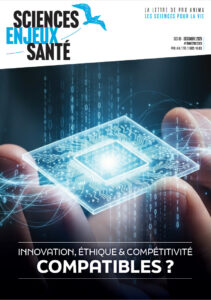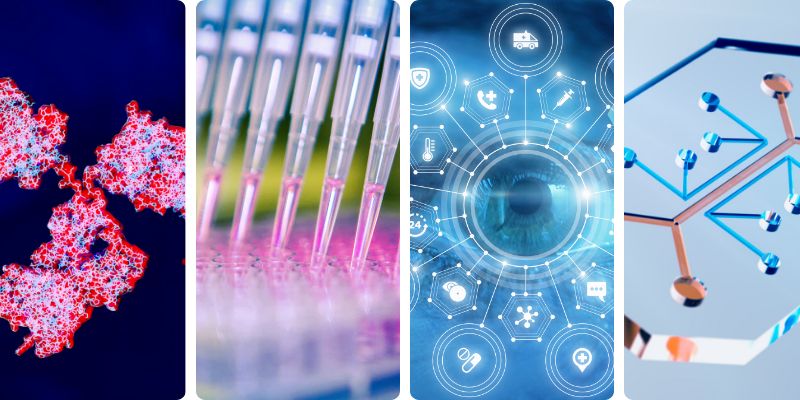
News on non-animal methods
Nov. 20 - 24, 2023
Presentation of TKPlate from EFSA – Food safety without animal testing?
Scientists from EFSA and several leading European research organizations have joined forces to create “TKPlate”. It is an online platform that provides scientists and regulators with a dedicated space and a suite of tools to model and predict the toxicokinetics and toxicity properties of chemicals.
Two EFSA scientists – toxicologist Jean-Lou Dorne and statistician/modeler Jose Cortiñas Abrahantes – are leading this work.
This new platform for modeling and predicting the toxicity of chemicals and their fate in humans and animals marks an important step towards a future where animal testing in the field of food safety will be reduced, or even non-existent.
Biomedical Research Revolution: An EU’s first-ever public database, dedicated exclusively to human biology-based models
The biomedical research landscape is evolving at breakneck speed, ushering in an era of precision, accuracy, and human-centric methodologies.
In recognition of the paramount importance of human-centric research, a consortium will create the EU’s first-ever public database, dedicated exclusively to human biology-based models.
Leading the charge in this transformative phase is the European Commission’s Joint Research Centre ambitious project, which places human biology-based models and methods at the heart of advancements in health research
FRESCI by SCIENCE&STRATEGY provides scientific and management coordination to the consortium developing this project, in a crucial collaboration with several partners: TenWise B.V., Ready2Use srl, AlterTox srl and EcoMole sro.
PhD Defence Human Liver Tissue Engineering — From Organoids to Tissues
End-stage liver diseases cause more than two million deaths yearly worldwide. Currently, the only effective treatment for end-stage liver diseases is liver transplantation. While less than 10% of patients obtain a suitable donor liver for transplantation, many patients are dying on the waiting list.
Therefore, there is an urgent need to find alternatives for donor livers for transplantation.
In the PhD dissertation “Human Liver Tissue Engineering- From Organoids to Tissues” conducted at Ultrecht University, Shicheng Ye et al. describes his achievements towards creating mini liver tissues that can be explored for transplantation purposes in the future.
The achievements made in this thesis can be applied as advanced in vitro models for fundamental studies, including liver development and disease modelling and can be seen as the foundation for translational research and possible clinical applications in the future.
Nov. 30, 2023, Geneva, Round table: Ethical and innovative research methods
As part of its 140th anniversary, the LSCV is offering a round table which will highlight replacement methods.
Ethical, efficient and innovative scientific research is possible!
Epithelix, FluoSphera, Neurix… All these companies based in Geneva develop and use research methods without resorting to animal experimentation.
Come meet scientists who will present their work and their exciting advances.
ECHA identifies research needs for regulating hazardous chemicals
The European Chemicals Agency (ECHA) has published a new report on ‘Key areas of regulatory challenge 2023’ that identifies areas where research is needed to protect people and the environment from hazardous chemicals. It also highlights where new methods, that support the shift away from animal testing, are needed.
To further improve chemical safety in the EU, scientific research needs to deliver data that is relevant to regulating chemicals.
InSphero to Revolutionize Oncology Research Through Advanced 3D Cell-Based Assays with ATCC
InSphero AG, the global leader in 3D cell culture technologies and organ-on-chip systems for drug discovery, and ATCC, the world’s premier biological materials management and standards organization, will work together to introduce new paradigms in the rapidly evolving field of 3D cell-based oncology research.
“There is still unnecessary animal testing going on”: Peter Nählstedt SenzaGen CEO on genomics and human tissue models
Swedish life sciences company SenzaGen has combined its expertise in genomics, machine learning and human tissue models, to develop testing methods that can potentially replace animal experiments for toxicological evaluations of chemicals used in beauty and personal care products.


